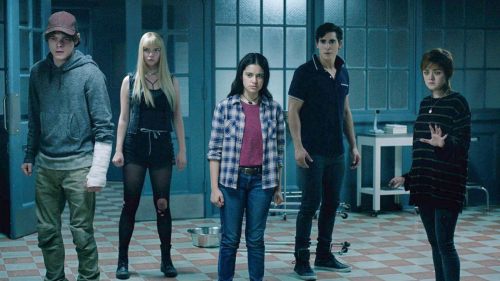Racism Mostly Out, Animal Cruelty All-In At Disney+
The official Disney+ Twitter account this week tweeted an impressively long thread of thumbnails announcing “basically” every title that will be available on the streaming service at launch. For many, it was a trip down nostalgia lane. But the functions of the announcement thread did were twofold: one, to get audiences excited about the new service; and two, to unwittingly reveal which parts of its history Disney will be covering up on it.
Most of the selections are what you’d expect: classic pieces of family entertainment both animated and live-action, with the addition of most Marvel and Lucasfilm titles (and some Fox titles that Disney has quietly slapped its logo on). Disney has also opted to include an impressive quantity of its capacious back-catalogue of straight-to-video trash, both in the form of unnecessary animated sequels and quickie tween-oriented titles that, to adult audiences, often seem made-up. Even a solid number of Disney’s live-action genre oddities make the grade, from failed pilot Mr. Boogedy to Kurt Russell’s early output to cult classics like The Black Hole. David Lynch’s The Straight Story did not make the cut, nor did many titles from the Buena Vista era - perhaps those will come later. Check out the three-hour sizzle reel, if you have that much disregard for your well-being.
What any eagle-eyed Disney historian would have been looking out for in this salvo of announcements is a set of titles whose existence is rarely if ever acknowledged by Disney. Throughout the nearly century-long history of the company, Disney has produced a great many films that either don’t work outside historical context, or that simply have not aged well. Most of them, you will not find on Disney+, or indeed, anywhere in Disney's public-facing literature at all.
Most are shorts. Disney produced several World War II propaganda films for the United States government that would raise eyebrows over their depiction of the Japanese, or over their mere inclusion of explicit Nazi imagery (even though it was presented negatively). One such film, Der Fuehrer’s Face, cast Donald Duck as a Nazi and won an Academy Award for it; another, Commando Duck, saw Donald wipe out an entire Japanese airfield. (So much for Jojo Rabbit being too provocative for the company.) Disney also produced a number of educational films, some of which have racist undertones in hindsight (the Spanish-language Insects As Carriers Of Disease comes to mind) and some of which wouldn’t play in an America ruled by religious conservatism (such as Walt Disney’s The Story Of Menstruation).
Two titles really rule the roost when it comes to problematic Disney history. The more obviously problematic of the two is Song of the South (1946), a technically ambitious live-action/animation hybrid that has the unfortunate distinction of being the single most visibly racist piece of entertainment created by the Walt Disney Corporation. Set in the wake of the Civil War, the film is an adaptation of several “Uncle Remus” stories, and sees white boy Johnny visiting his grandmother’s idyllic plantation to be entertained by Remus (James Baskett) with a variety of tall tales. It’s chock full of African-American stereotypes, and looks so generically fondly upon the postbellum plantation lifestyle that it's easy to conflate it with the antebellum plantation lifestyle.
The film was a financial success, winning two Academy Awards - including a special award for Baskett, the first African-American man to win an Oscar, though not a competitive one. It inspired the still-active Disney ride Splash Mountain, and some of its characters continued to appear in other Disney media well into the twenty-first century. But Song of the South has been all but disowned by Disney, which has never released it on home video in the United States. It’s so notorious that Whoopi Goldberg has called for its re-release specifically to draw attention to the racist past (and frankly, present) of mainstream America. But Disney+ won’t be carrying it, and it seems unlikely Goldberg will ever get her wish.
The other wholly problematic feature in Disney’s back catalogue is being released on Disney+, and it’s problematic for an entirely different reason. 1958 documentary White Wilderness was released (and is being streamed) as part of Disney’s “True Life Adventures” series, a string of documentaries that were each constructed around fictitious narratives. White Wilderness is a film about the wildlife of the North American portion of the Arctic Circle, and it’s spectacular enough that it won the Academy Award for Best Documentary.
While most True Life Adventures merely collected facts and footage together into tales about individual animals for narrative's sake, White Wilderness went a step further. A good portion of the footage is faked, including footage of polar bear cubs cavorting down snow drifts that was filmed on a sound stage. More worryingly, White Wilderness is the film wholly responsible for the myth that migrating lemmings jump off cliffs in a form of mass suicide - a myth created by pushing lemmings off cliffs in a form of mass murder. What possessed the filmmakers to invent such a morbid storyline, through such transparently cruel means, is unclear, but such was the persuasive power of the Walt DIsney brand, the myth stuck. (For the record: most lemmings do not even migrate. Like, at all.)
Now, it’s worth adding that I don’t want Song of the South on Disney+. It is, after all, incredibly racist (though it’s not like other classics like Dumbo, The Aristocats, Pocahontas, or Lady and the Tramp aren’t), and though Whoopi Goldberg is right that it should be taught in context, Disney+ is not the place to do that. Lumping it in with legitimately beloved favourites without any sort of framing would be irresponsible, and would only perpetuate the stereotypes it contains - not to mention that the the film’s inclusion on a for-profit platform would be pretty gross (see also: the Bill Cosby-starring The Devil And Max Devlin, for different reasons). Its copyright has expired in other markets, such as Japan, and the smart thing would be to simply let it expire in the United States too. Let the film become the cautionary tale it should be. Clinging to that copyright is just bizarre at this point.
And put some kind of disclaimer on White Wilderness, for goodness’ sake. Y’all straight-up murdered a bunch of animals to tell a completely fabricated story under the guise of documentary. The history of Disney is thoroughly pockmarked with issues like this, and to celebrate the triumphs in your history, you must acknowledge the failures. Take some responsibility. And put John Carter on Disney+, you cowards.



